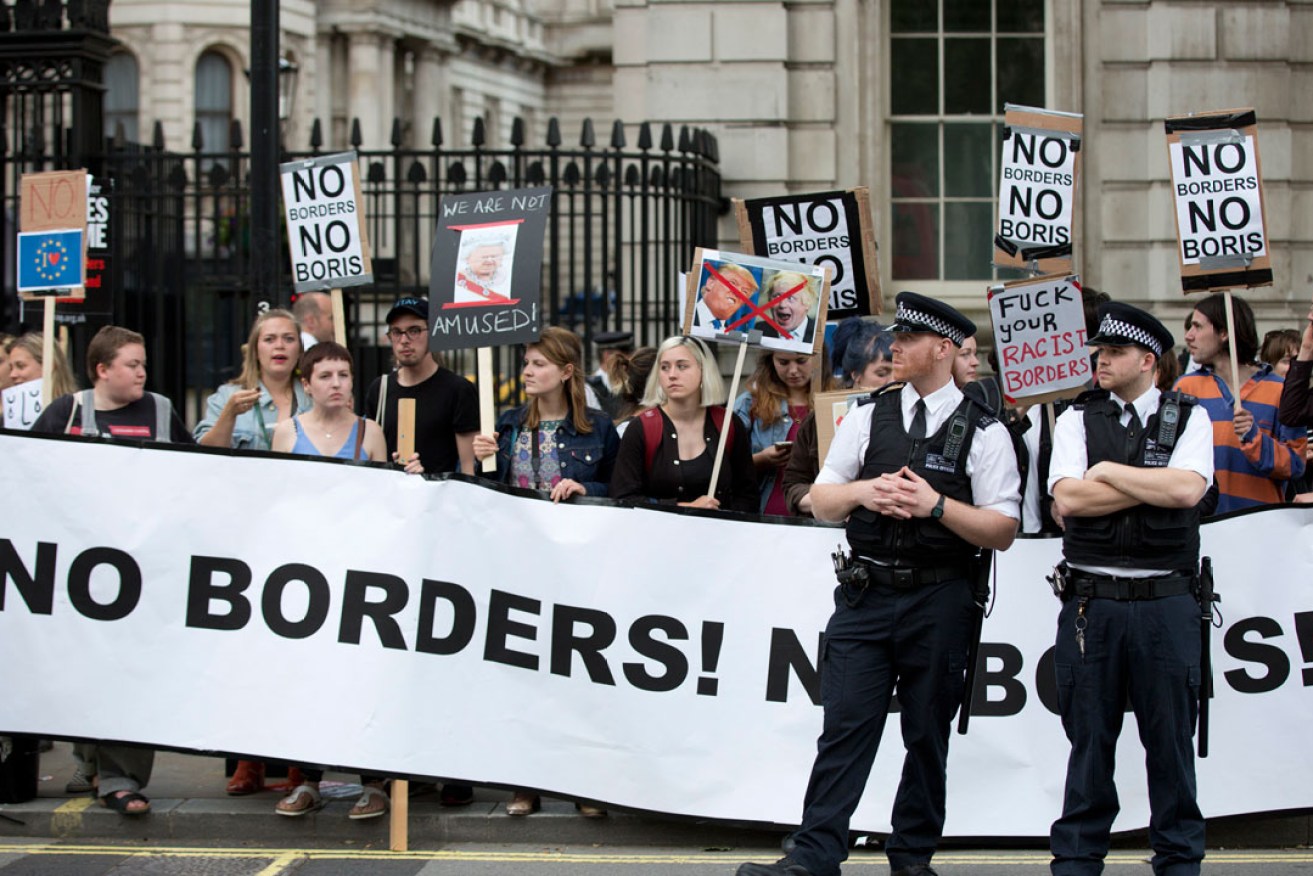British political crisis deepens after Brexit vote
Britain plunged deeper into political crisis over the weekend after its vote to leave the European Union, spreading further confusion and uncertainty to the continent, where officials were unable to agree about what to do next.

Anti-Brexit protesters demonstrate at the gates of Downing Street after vote. Photo: PA
The turmoil also caused alarm around the world; China’s finance minister said fallout from Thursday’s referendum “will cast a shadow over the global economy”, while a senior official in Tokyo warned of the danger of “speculative, violent moves” in currencies.
In Britain, open political conflict spread from the ruling Conservatives to the opposition Labour party, where 11 senior lawmakers withdrew support for their leader after traditional backers rejected the party’s pro-EU stand in droves.
Splits widened across the nation, as more than three million Britons signed a petition demanding a re-run of the referendum, with the number climbing by the hour, and an opinion poll showed a large majority of Scots now want to break with the United Kingdom.
Scotland’s leader promised she would do whatever it takes to keep her strongly pro-EU country in the bloc, including potentially vetoing legislation on a British exit from the world’s biggest single market.
But French President Francois Hollande declared there was no going back on “Brexit”.
“What was once unthinkable has become irreversible after the vote of a majority of the British people,” he said during the inauguration of a World War II memorial in central France.
Hollande called for France and Germany to use their strong friendship to seize the initiative, warning that “separated, we run the risk of divisions, dissension and quarrels”.
He and Chancellor Angela Merkel discussed the issue by phone and an aide said they were in “full agreement on how to handle the situation”.
German Vice-Chancellor Sigmar Gabriel also took a tough line on the EU’s future ties with London, although Merkel had been more emollient on Saturday, calling for clear-headed negotiations with a “close partner”.
British Prime Minister David Cameron resigned on Friday but left the task of formally notifying the EU of Britain’s intention to leave to his successor, who is unlikely to be in office for about three months.
That signals a long period of limbo. He will meet the other 27 EU leaders at a summit in Brussels on Tuesday.
The Sterling fell as much as 10 per cent against the dollar on Friday to levels last seen in 1985, while more than $US2 trillion ($A2.68 trillion) was wiped off the value of world stocks.
In China, Finance Minister Lou Jiwei expressed his concerns about the threat to the global economy.
Central banks promised through their global forum to do as much as they could to contain market uncertainty.
Japan contemplated official action on the currency market.
South Korea also expressed concern while Hong Kong’s finance chief promised vigilance.
The United States – which during campaigning made clear it wanted Britain to stay in the EU – also showed signs of unease.
Secretary of State John Kerry will visit Brussels and London on Monday, and is likely to stress the importance of other EU members not following Britain to further weaken the bloc.
-Reuters




